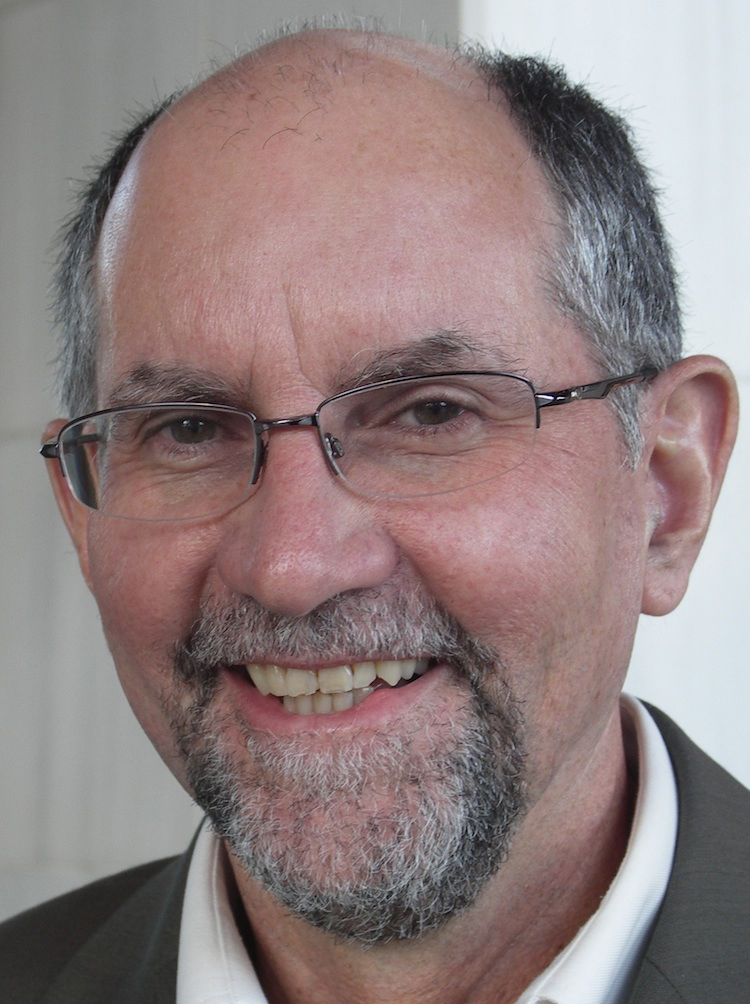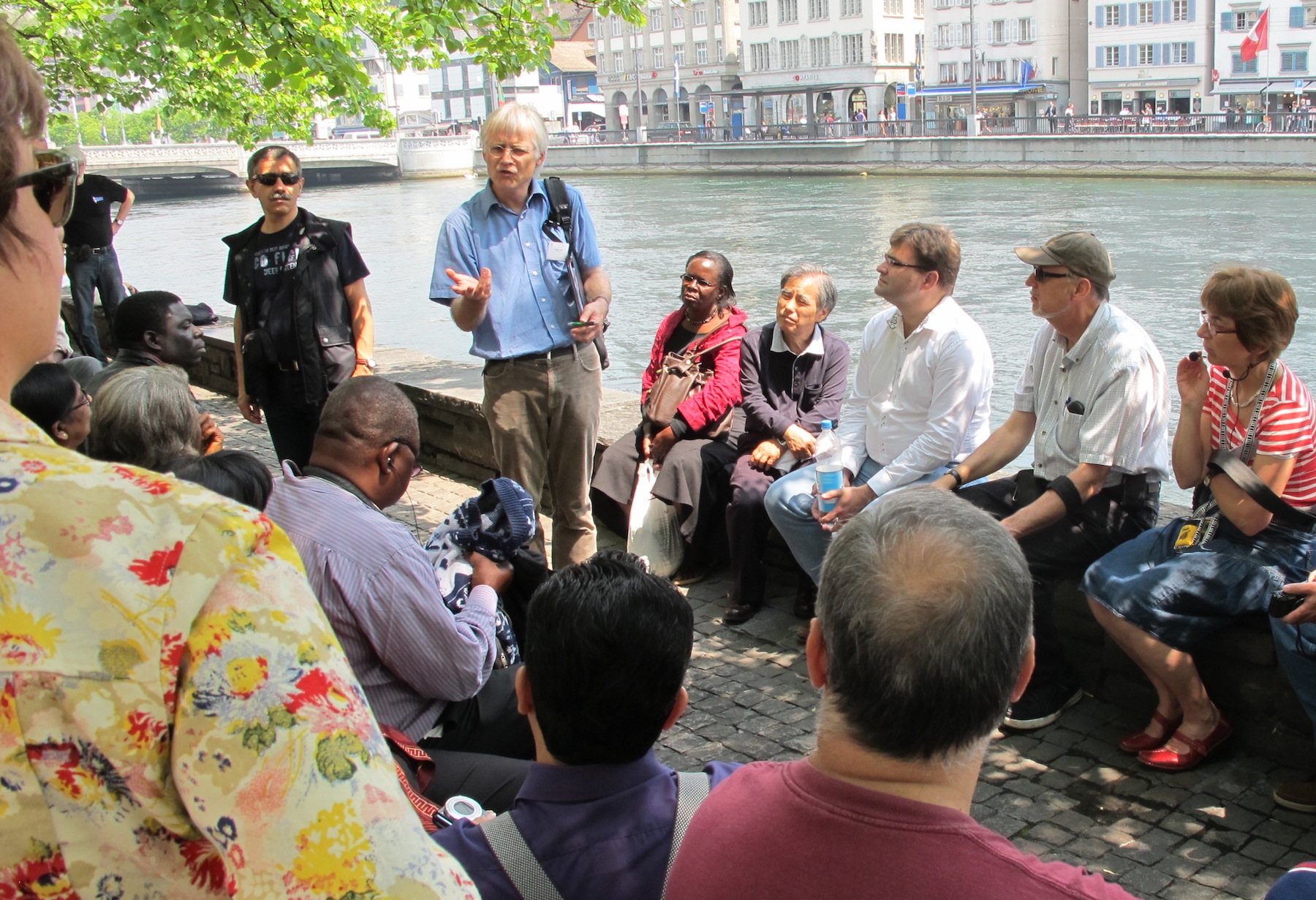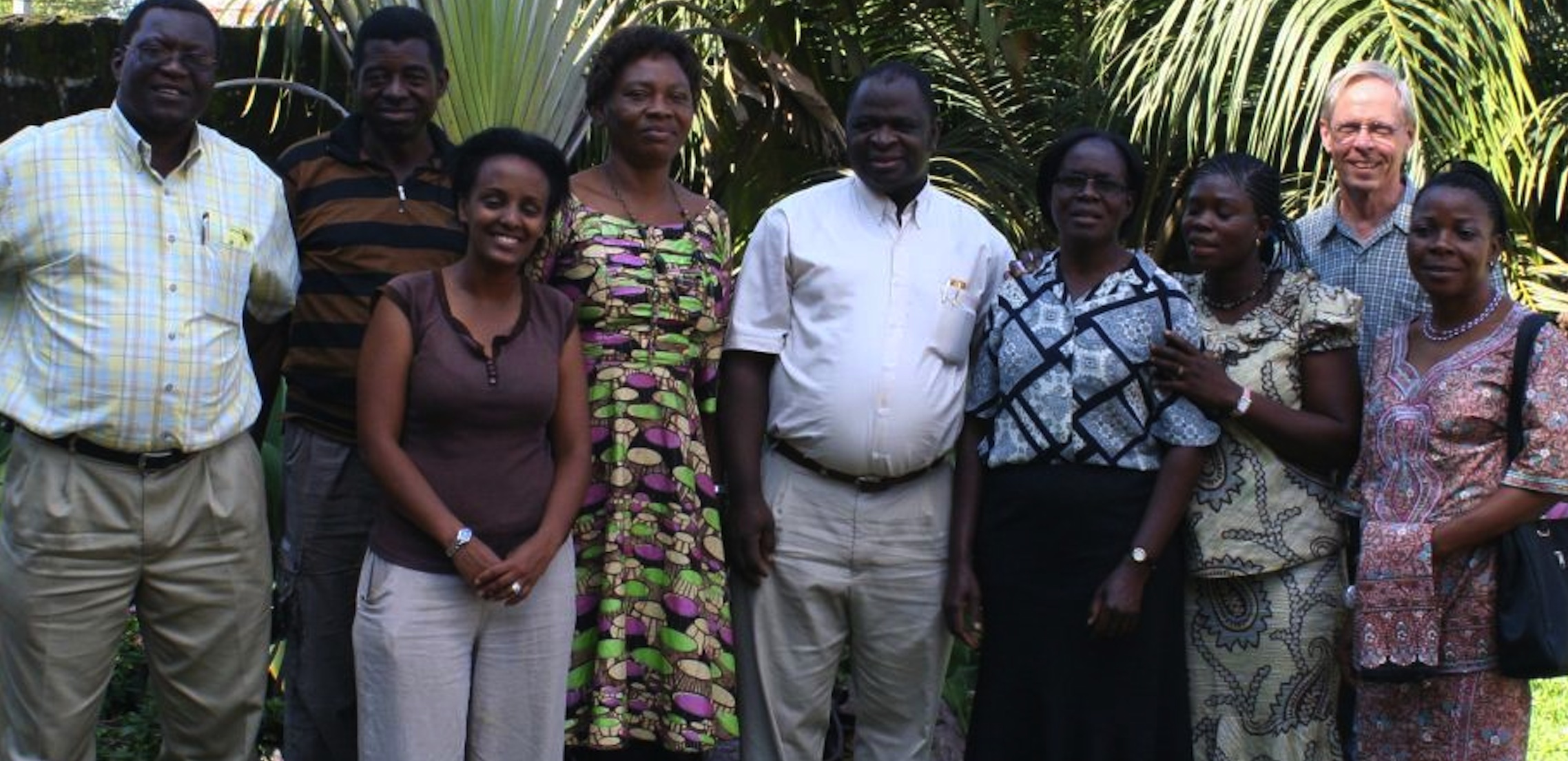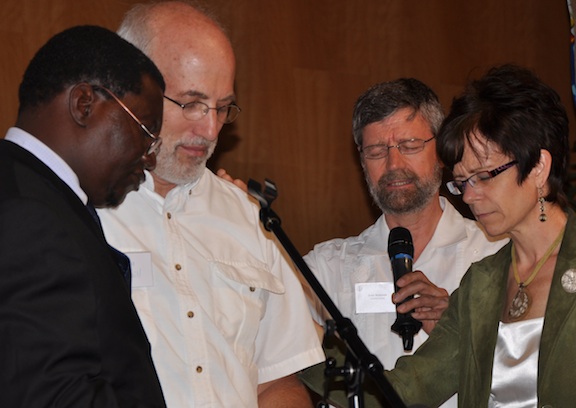-
Advisory council prepares for privilege of hosting world assembly; approves $850,000 fundraising goal for 2015 event
Lancaster, PA—Both the welcome anticipation and the challenges of hosting the next Mennonite World Conference Assembly were evident in the meeting of the National Advisory Council held here March 22-23. Council members, who represent the four inviting denominations, spoke of the “honour” and “privilege” of hosting members of the MWC global communion for the 16th
-
MWC General Council sets stage to deepen global relations and strengthen Anabaptist identity
Bettingen, Switzerland—Swiss Mennonite historian Hanspeter Jecker stood on the bank of the Limmat River in Zurich, Switzerland, near the site where Anabaptist martyr Felix Manz was drowned. He was speaking passionately to a group of international church leaders about the 16th century drowning. Suddenly from the group came an outburst from Joly Birakara Ilowa from
-
Regional workshops lay foundation for MWC Africa Caucus
Kinshasa, DR Congo—Two separate meetings of Mennonite World Conference (MWC) Africa representatives occurred on successive weekends at the end of October and early November 2011 in Kinshasa, Democratic Republic of Congo. Together they marked the “end of the beginning” of a five year long process to put into place a new structure for fellowship and
-
Honduran pastor murdered; church asks for prayer
On Sunday, January 22, Rafael Erasmo Arevalo, a Mennonite pastor in Honduras, was attacked and killed after leading an evening worship service. Arevalo, from Santa Rosa de Copán, drove about 20 kilometres north to Veracruz, where he had led worship services for the past 10 years. According to a report in a Honduran newspaper, La
-
Nelson Kraybill chosen as President-elect of Mennonite World Conference
After the General Council selected J. Nelson Kraybill (second from left) as MWC President-elect, the MWC officers—President Danisa Ndlovu (left) and Vice-president Janet Plenert (right), along with representatives from North American MWC churches such as Ervin Stutzman (second from right), offered prayers of blessing. – Photo by Merle Good Bettingen, Switzerland—On May 25, delegates to
-
Straddling Lao PDR and Zimbabwe
“I became a person who can relate to everyone,” Godswill Muzarabani said. He could fit in with the language and culture regardless which group he was relating to.
-
Warmth, Honesty Mark Mennonite-Adventist Dialogue
Liestal, Switzerland—Representatives of Mennonite World Conference and the General Conference of Seventh-day Adventists met in dialogue May 28-31 at the Bienenberg Study and Conference Center in Liestal, Switzerland. The four days of conversation were characterized by both Christian warmth and frank exchange of perspectives. This was the second round of dialogue based on the theme,
-
Kenyan Mennonites make history by writing it
Nairobi, Kenya – Nine Kenyan delegates and three editors gathered together at the Mennonite Guest House in Nairobi the last week in January. Their task: to proof the manuscript of a history of the Kenya Mennonite Church (KMC), a Mennonite World Conference member church. The idea for this book, chronicling KMC’s 50-year history, was birthed
-
Aid to residents of temporary housing a focus of relief assistance in Japan
Japan—Assistance to residents of temporary housing is one way that Japan Mennonite Fellowship is focusing its ongoing work of relief assistance following the March 2011 earthquake and tsunami. By the end of December, many shelters had closed and affected people had to move into temporary housing as the first step to independence, which meant that
-
Anne Zernike Fund marks centenary of first ordination of female pastor in the Netherlands
Netherlands—On November 6, 2011, the Anne Zernike Fund was established in honour of the first Mennonite female pastor in the Netherlands to mark the centenary of her ordination on November 5, 1911. She was also the first female pastor ordained in any church in the Netherlands. The fund aims at two goals. The first is
-
Colombian Anabaptist churches request prayer for victims, perpetrators and peacemakers
Bogotá, Colombia—On Sunday, April 15, some Colombian Anabaptist churches ask congregations in their own country and beyond to worship, pray and reflect for the victims, perpetrators and peacemakers related to conflict in their country. The Internally Displaced Monitoring Center, according to an article released recently by Mennonite Central Committee, reports that just over 5 million
-
Seminars encourage spiritual renewal – and much more – in Burkina Faso
Orodara, Burkina Faso – During the second week of February, more than 100 Mennonite women had the time of their lives in Orodara, Burkina Faso. The Eglise Evangélique Mennonite du Burkina Faso annual women’s seminar combines adult continuing education, business training, spiritual renewal, and just plain time-away-from-work fun. Burkina Mennonite Church, a member church of








